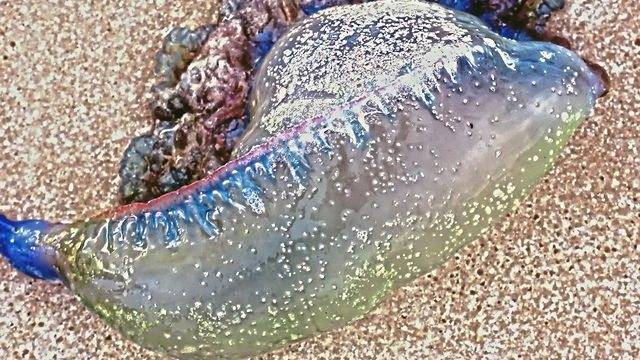North and South Carolina warn of Portuguese Man O’ Wars on beaches
Wildlife officials in North Carolina and South Carolina are warning beachgoers about Portuguese Man O’ Wars in the ocean and on beaches.
On Friday, the South Carolina Department of Natural Resources posted to Facebook that a small number of the sea creatures were reported on state beaches.
The post warns, “You should steer clear of these highly venomous relatives of jellyfish both in the water and ashore, as even a dead man-of-war has a sting strong enough to sometimes require medical attention.”
Earlier in June, the Cape Hatteras National Seashore in North Carolina posted a similar warning. They warn, “Beachcombers beware - even dead ones washed up on shore can still deliver a sting.”
According to the National Ocean Service, the Portuguese Man O’ War (Physalia physalis) is closely related to jellyfish, but is actually a species of siphonophore, which is a colony of individual organisms working together.
Experts say a dead Man O’ War can create a sting strong enough to require medical attention.
Authorities say the sting to humans is excruciatingly painful but rarely deadly, according to the Associated Press.
The beaches of the Carolinas, and especially the Outer Banks area, remain favorite vacation spots for many residents of Western Pa.
Frank Carnevale is the TribLive multimedia editor. He started at the Trib in 2016 and has been part of several news organizations, including the Providence Journal and Orlando Sentinel. He can be reached at fcarnevale@triblive.com.
Remove the ads from your TribLIVE reading experience but still support the journalists who create the content with TribLIVE Ad-Free.


